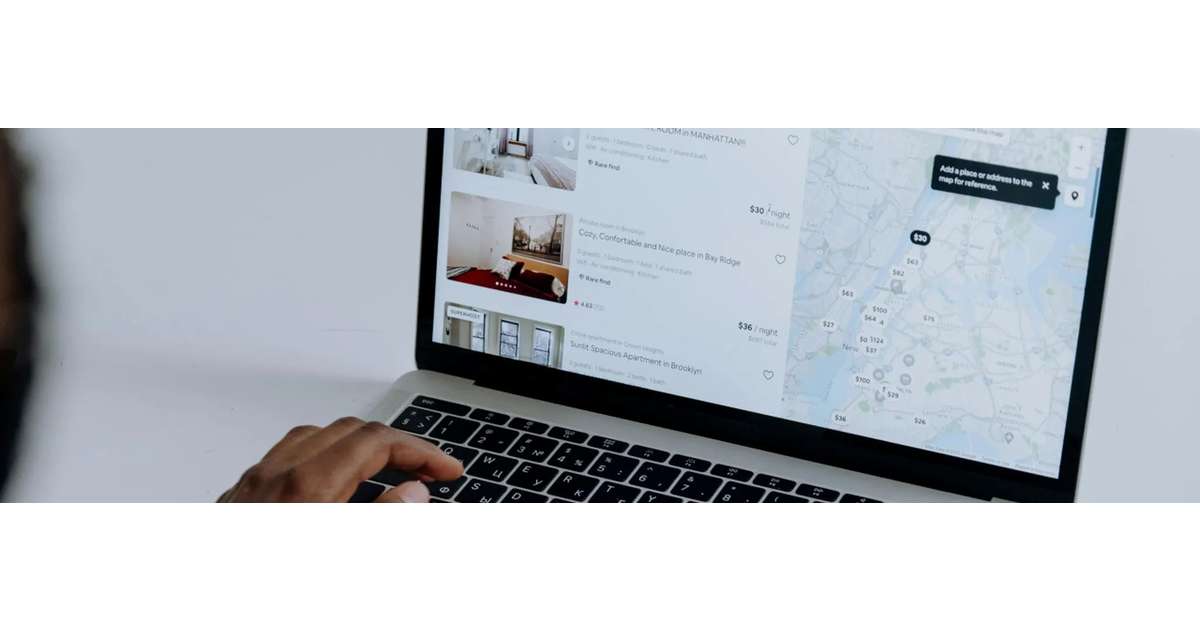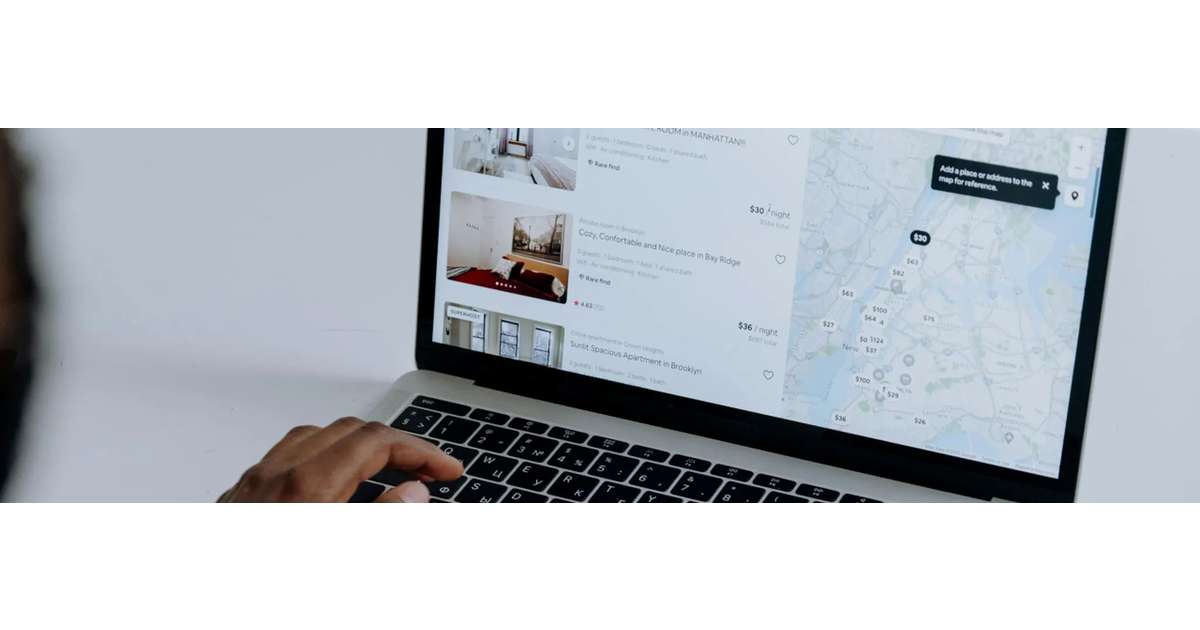

The pace of innovation at online travel agencies (OTAs) continues to accelerate, transforming how travelers discover, plan and book their stays. For independent hotels and B&Bs, these changes can bring both opportunity and pressure.
The year 2025 marks a turning point. Major players Booking.com, Expedia and Airbnb are reshaping their platforms through artificial intelligence (AI), social media and new business models that impact OTA dynamics and hotels globally.
What do these shifts really mean for independent hoteliers like you? We spoke to Vincent Goemaere, Vice President of Independent Hotel Solutions at Lighthouse, who closely monitors developments in the market to gather his expert knowledge and advice.
This article outlines the three most important OTA trends of 2025 every hotelier should know and practical ways to respond.
OTA trend #1: Booking.com and Expedia increasingly leverage AI
Artificial intelligence is quickly moving from the background to the forefront of the travel booking experience. Very recently, both Booking.com and Expedia launched direct integrations with OpenAI’s GPT-5, allowing users to search and book trips through conversational AI rather than by browsing websites.
Travellers can now ask “Find me a well-rated hotel in Lisbon with amenities for young kids and close to the main attractions” and instantly receive bookable recommendations, all powered by OTA data.
Travelers no longer scroll through endless websites and lists of hotels. Instead, they ask questions, expect instant answers and trust AI suggestions. OTAs have now entered this AI era, giving them even more influence over visibility and making it vital for hotels to optimize their presence. Vincent Goemaere
AI-driven search engines show properties that are well-represented on OTAs, with strong visuals, detailed information and high review scores. That means having complete, accurate and up-to-date listings has just become even more important.
How to respond
- Keep OTA listings fully updated. Use recent high-quality photos, detail-rich descriptions and complete lists of the amenities you offer.
- Collect and manage reviews actively. Response rates and review quality directly influence AI rankings.
- Balance OTA exposure with a strong direct strategy. Continue using OTAs for visibility, but apply tactics to increase direct bookings to gain control over guest relationships and protect your profitability.
- Leverage guest data. Encourage direct engagement post-stay via email or loyalty offers to bring repeat guests back through your own channel.
- Adapt your website. Make sure AI engines can easily crawl and understand your site in order to increase mentions. Follow the 5 key steps in our guide: How to optimize your hotel website for AI search.
OTA trend #2: Social media apps are blending with hotel booking platforms
The line between social media and travel booking is blurring fast. Social platforms, particularly TikTok and Instagram, are now bridging the gap between the inspiration and purchase phase in the travel industry.
In August 2025, TikTok launched an in-app hotel booking feature through Booking.com, allowing users to reserve stays without leaving the app. A video featuring a destination or property can immediately lead to reservations, bypassing the hotel’s own website and other channels entirely. And back in June, Expedia launched Trip Matching, an AI-powered feature that turns Instagram Reels into ready-made itineraries with bookable hotels.
This trend reflects how younger travellers make decisions: through inspiration and social validation, not traditional search. According to Expedia Group, 80% of millennials now rely on social media for travel decisions.
The real takeaway for hotels? Social media content is no longer merely inspirational, but it now has real booking power. This means that hotels must pay even closer attention to how their brand appears across social platforms. Vincent Goemaere explains: The social booking trend is changing the rules. Hotels now have to think of social media as an actual booking channel. Those who own their narrative online can gain the upper hand.
How to respond
- Build your presence and post regularly. You can find a step-by-step guide to building a successful social media strategy and practical tips in our free digital marketing guide for hotels.
- Maintain a consistent brand identity that stands out. Make sure your visual branding and content on social align with your website and how your property appears on OTAs. Highlight your unique selling points (USPs) that set you apart from competitors.
- Collaborate with creators. After careful consideration, partner with trusted influencers or loyal guests who can promote your property authentically on their pages.
- Integrate booking links. Ensure that your social bios (short description of your profile or page), posts and stories include easy paths to book directly.
OTA trend #3: Airbnb pivots strategy to gain competitive advantage
After years of focusing on short-term rentals, Airbnb is expanding its footprint into the territory of independent hotels and licensed B&Bs. CEO Brian Chesky recently announced these plans, a strategic move designed to compete more directly with established hotel platforms Booking.com and Expedia. Earlier, the platform also launched Airbnb Services and Airbnb Experiences, paid add-ons for chefs, wellness treatments and activities.
The overarching goal is to keep users within Airbnb’s ecosystem, both enhancing convenience for travelers and reducing reliance on other search channels.
This pivot is not just about offering more alternatives to travelers seeking local experience-rich stays. It’s a way to side-step tightening short-term rental regulations in certain markets and capture a wider share of global demand. By adding hotels, the platform can maintain inventory and revenue flow while staying compliant with local laws.
What will the change look like? Concretely, Airbnb intends to attract more and more small hotels, guesthouses and bed-and-breakfasts alongside homes, merging professional hospitality with local authenticity.
Additionally, Airbnb is pushing accommodations towards a host-only fee structure, where a 15.5% commission replaces the traditional “service fee” paid by the guest. On 27 October, Airbnb will force PMS users to switch to the host-only structure and on 1 December, the commission rate will be changed from 15 to 15.5% for everyone. This aligns its model more closely with OTA pricing, simplifying comparisons for travelers.
The inclusion of independent hotels and B&Bs opens new opportunities for visibility in front of a new audience, but it also comes with new pressure:
- Search competition will intensify. Boutique hotels will appear alongside home rentals in mixed results, creating more direct comparison.
- Pricing transparency will rise. With Airbnb adopting a host-only fee structure, guests now see one all-inclusive price, similar to other OTAs’ models.
- Visibility depends on engagement. Airbnb’s algorithm favors active hosts with frequent updates, fast responses and strong reviews, which hotels should manage diligently.
Vincent Goemaere notes: For independent hoteliers, Airbnb’s expansion is a double-edged sword. It offers access to an interesting audience, but the same exposure can create pricing pressure. The key is to experiment strategically, see where the platform adds value without diluting your direct brand.
How to respond
- Experiment with Airbnb. Try it during softer periods first and measure performance against your other channels. Monitor conversion and other performance metrics to ensure Airbnb drives the desired type of guest (characterized by higher spending and longer stays, for example).
- Adapt your pricing. With Airbnb pushing towards the host-only fee model, make the switch now and adjust your pricing to remain competitive and align rate parity and profitability across your channels. After all, your payout after commission won’t change, only the all-in price guests see. Accommodations that don’t visibly charge additional fees are likely to convert better.
- Stay proactive with reviews and response times. Airbnb’s visibility algorithm rewards engagement; prompt replies and detailed guest communication matter.
- Differentiate through experience. Highlight authenticity and experience in your photos and descriptions to cater to Airbnb’s audience and reinforce what makes your property unique.
Conclusion: Evolve with the market to stay competitive
The key OTA trends of 2025 show one clear pattern: convergence. OTAs, social media and AI search engines are merging into convenient platforms where inspiration, comparison and booking happen seamlessly.
Success in 2025 won’t come from abandoning OTAs, but from mastering how to use them smartly and reclaim control over your distribution mix. Vincent Goemaere, Vice President of Independent Hotel Solutions
For independent hotels, success depends on agility: staying visible, competitive and connected to guests across multiple channels while maintaining control of positioning and pricing.
Vincent Goemaere summarizes it best: The right question isn’t whether OTAs are good or bad for your hotel. It’s how you can turn them into profitable partnerships. Stay present where travelers search, but make sure to highlight direct booking advantages and turn guests into loyal direct customers when they arrive.
Reduce commissions while saving valuable time
Are you looking to optimize your OTA strategy and maximize profits? Smart Distribution by Lighthouse helps independent hoteliers make their online distribution more profitable with less effort.
Our AI-powered platform automatically adjusts pricing, restrictions and closures per channel to stimulate direct bookings and deliver optimal profitability. No more guesswork or manual updates. Read all about Smart Distribution here or request a free demo to see Lighthouse in action.
About Lighthouse
Lighthouse is the leading commercial platform for the travel & hospitality industry.
We transform complexity into confidence by providing actionable market insights, business intelligence, and pricing tools that maximize revenue growth.
We continually innovate to deliver the best platform for hospitality professionals to price more effectively, measure performance more efficiently, and understand the market in new ways.
Trusted by over 70,000 hotels in 185 countries, Lighthouse is the only solution that provides real-time hotel and short-term rental data in a single platform. We strive to deliver the best possible experience with unmatched customer service. We consider our clients as true partners—their success is our success.
For more information about Lighthouse, please visit: https://www.mylighthouse.com.
View source
Please visit:
Our Sponsor
